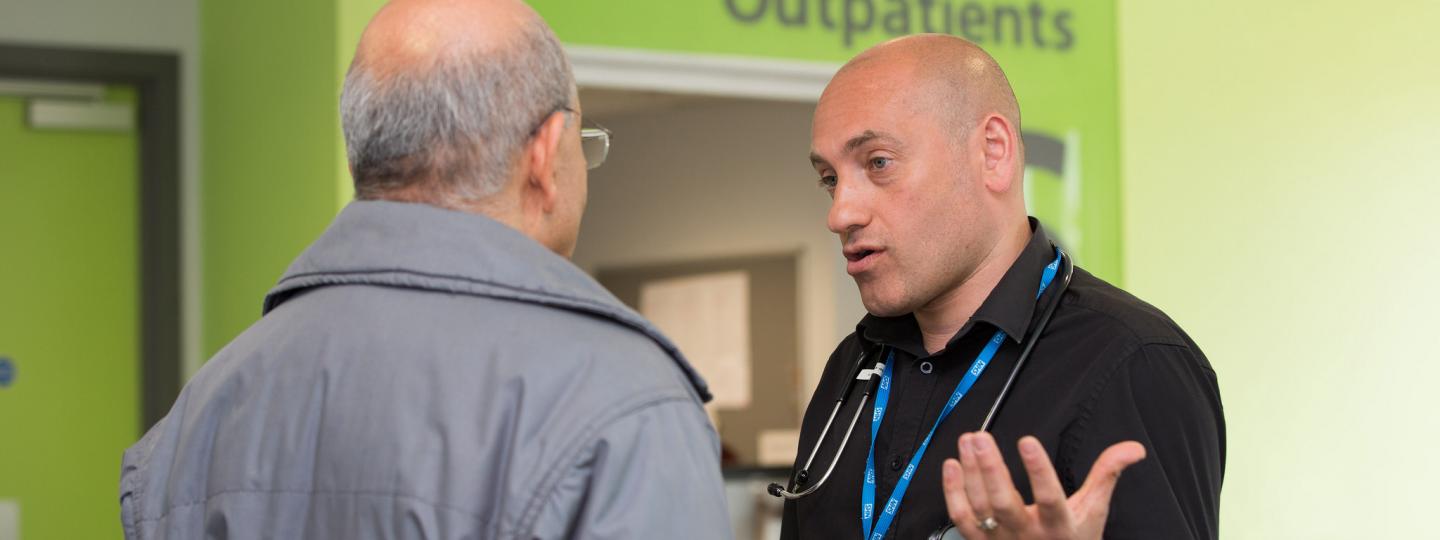Help making a complaint
Take a look at our practical resources to help you make a complaint about NHS health and social care services.
Knowing how to make a complaint
If you are unhappy with the service you, or someone else, has received from the NHS, you have the right to raise your concerns about it.
Making a complaint can be a daunting task, so knowing who you can complain to and what to do is essential.
We can help you. We've worked with Healthwatch England to produce straightforward advice that will guide you through the process from knowing who to talk to, top tips on what to do and what you can expect from services in response.
Things to consider when making a complaint
All health and social care providers must have a Complaints Procedure available for you to see. This will tell you how to make a complaint to that service, the timeframe for a response and what you can expect through the process.
If you are making a complaint about more that one organisation – perhaps a complaint that includes issues about your GP and local hospital – you'll only need to make one complaint. The organisation that receives your complaint must then co-operate with the others to ensure you receive a co-ordinated response.
When making a formal complaint try and include details about when and where the issue happened, a description of what happened, the name of the service or the person you are making a complaint about, your name (or the name of the patient you are complaining on behalf of), and your contact details.
It will help if you have an idea if what you want to happen as a result of making the complaint. For example, do you want:
- to make the service aware of your concerns?
- an apology?
- an explanation of what happened and why?
- improvements to be made to stop this issues happening again?
If you do give feedback or make a complaint to an organisation, we would like to hear about it too. If you tell us about it, we can use the information to help make changes and prevent the same thing happening to other people.
Complaints advocacy
Help with making a complaint to the NHS
There are different reasons people make complaints. Most of the time, people want to ask questions. They want to understand what happened and why and find out what action can be taken to put things right. They might also want an apology.
Complaints can also help services to make changes, so that what’s happened doesn’t happen to someone else.
But it can be difficult to speak up when you’re not happy with your NHS care and treatment. The complaints process can be long and complicated.
To make this easier, the law says you can have support from an independent advocate, and you won’t be charged for this service.
An advocate will take time to listen and understand your situation, help you explore your options, support you to decide what you want to do, and speak on your behalf if you feel unable to do so yourself – but they won’t tell you what to do.
The provider of NHS Complaints Advocacy in this area is The Advocacy People. Contact them on 0330 440 9000, info@theadvocacypeople.org.uk or Text 80800, starting message with PEOPLE.
Contacts
- Milton Keynes Safeguarding Team: If you feel that a young person is being neglected or abused, please contact Milton Keynes Council Safeguarding Team on 01908 253772
- Patient Advice and Liaison Service (PALS): If you want to make a complaint about Milton Keynes University Hospital you should contact the Patient Advice and Liaison Service (PALS). Milton Keynes University Hospital ask that, where appropriate, you speak to the ward or department senior sister, charge nurse or manager in the first instance.
- CQC: The Care Quality Commission (CQC) inspects all hospitals, dentists, care homes and care services to see if they meet national standards. The CQC cannot settle indiviudal disputes but your feedback about poor care helps them to decide when, where and what to inspect.
- NHS England: NHS England take complaints or feedback about primary care services such as GPs, dentists, opticians or pharmacy services.
- Dental Complaints Service: the dental complaints services is a free and impartial service, funded by the General Dental Council, and can help resolve issues you may have with private (not funded by the NHS) dental services
- AvMA: AvMA is a charity for patient safety and justice who provide free independent advice and support to people affected by medical accidents (lapses in patient safety) through their specialist helpline, written casework and inquest support. They can refer to their accredited clinical negligence solicitors if appropriate.
If you are unhappy with the outcome of your complaint, or have been unable to reach a resolution, you can ask the Parliamentary Health Service Ombudsmen to review it. The ombudsmen makes the final decision on complaints that have not been resolved by the NHS.
